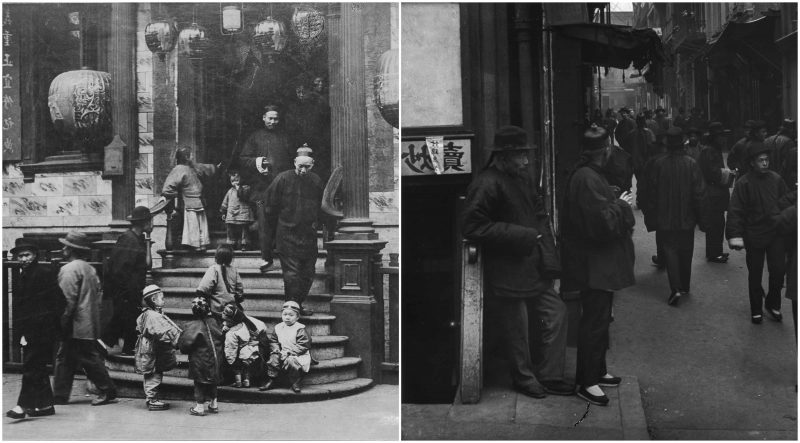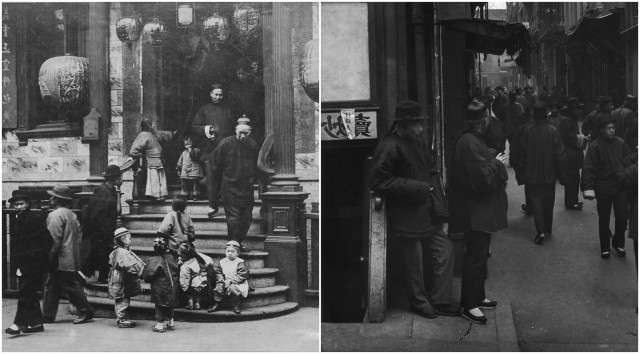
The Chinatown centered on Grant Avenue and Stockton Street in San Francisco, California, is the oldest Chinatown in North America and the largest Chinese community outside Asia. It is the oldest of the four notable Chinatowns in the city. Since its establishment in 1848, it has been highly important and influential in the history and culture of ethnic Chinese immigrants in North America. Chinatown is an enclave that continues to retain its own customs, languages, places of worship, social clubs, and identity. There are two hospitals, numerous parks and squares, a post office, and other infrastructure. While recent immigrants and the elderly choose to live in here because of the availability of affordable housing and their familiarity with the culture, the place is also a major tourist attraction, drawing more visitors annually than the Golden Gate Bridge.
San Francisco’s Chinatown was the port of entry for early Hoisanese and Zhongshanese Chinese immigrants from the Guangdong province of southern China from the 1850s to the 1900s. The area was the one geographical region deeded by the city government and private property owners which allowed Chinese persons to inherit and inhabit dwellings within the city. The majority of these Chinese shopkeepers, restaurant owners, and hired workers in San Francisco Chinatown were predominantly Hoisanese and male. Many Chinese found jobs working for large companies seeking a source of labor, most famously as part of the Central Pacific on the Transcontinental Railroad. Other early immigrants worked as mine workers or independent prospectors hoping to strike it rich during the 1849 Gold Rush.
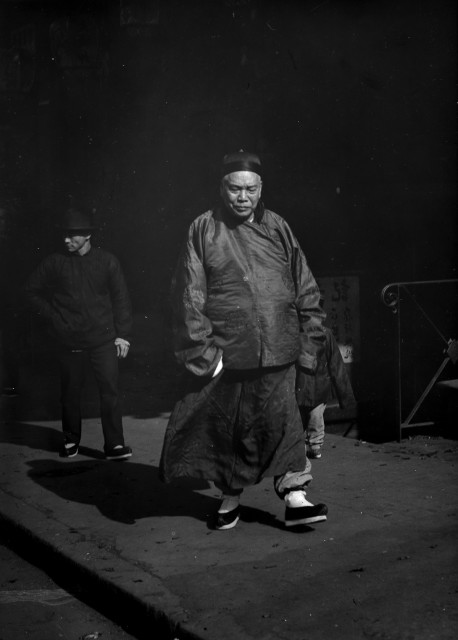
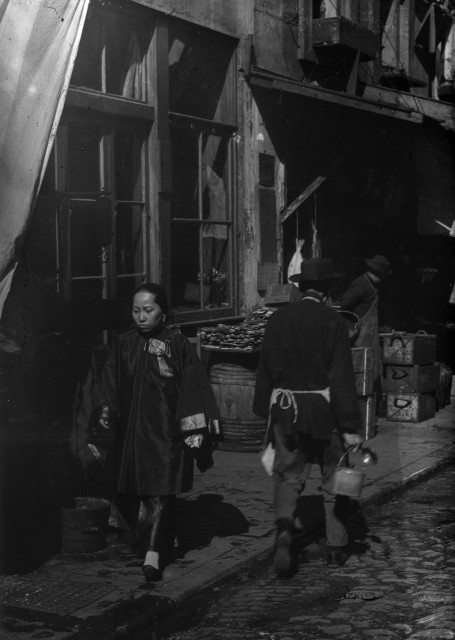
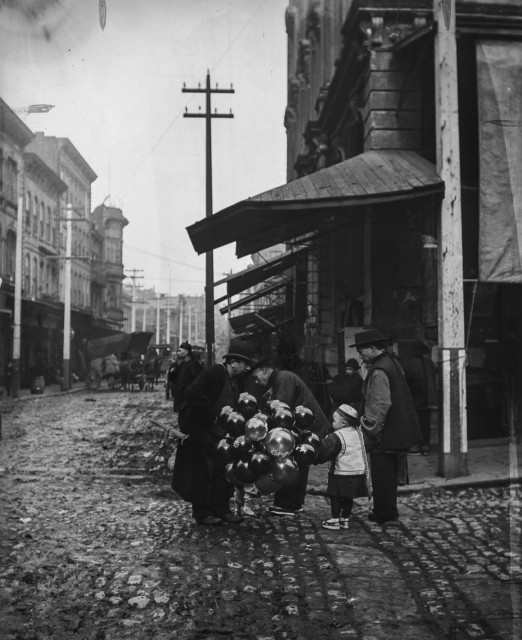
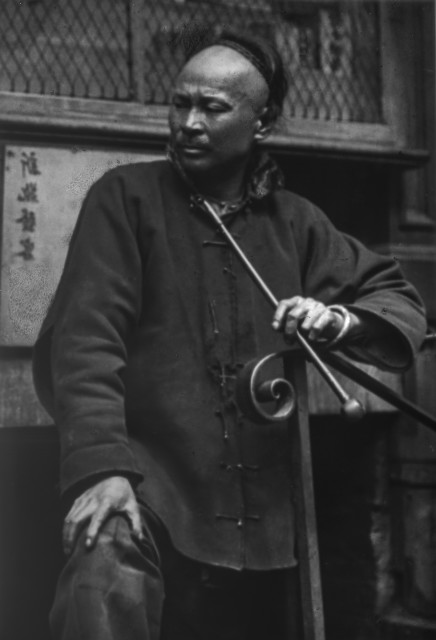
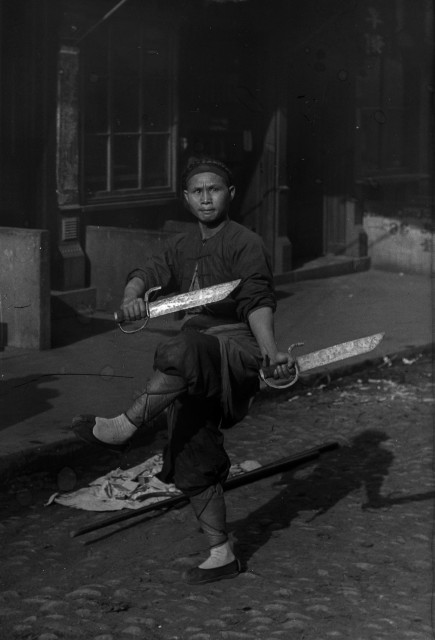
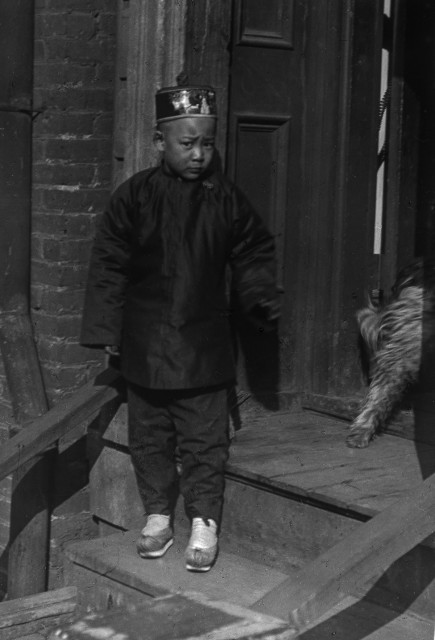
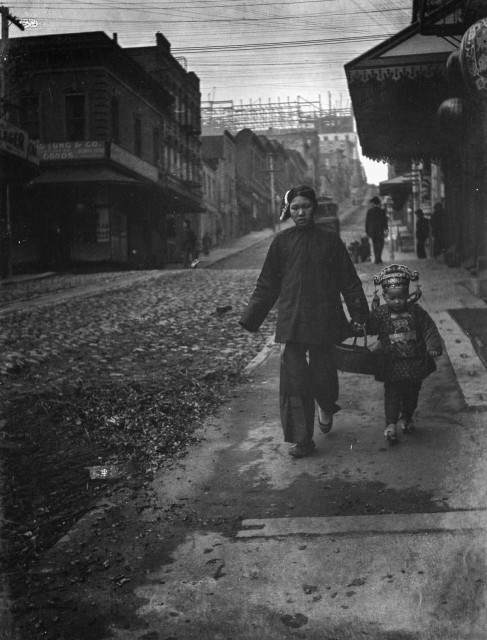
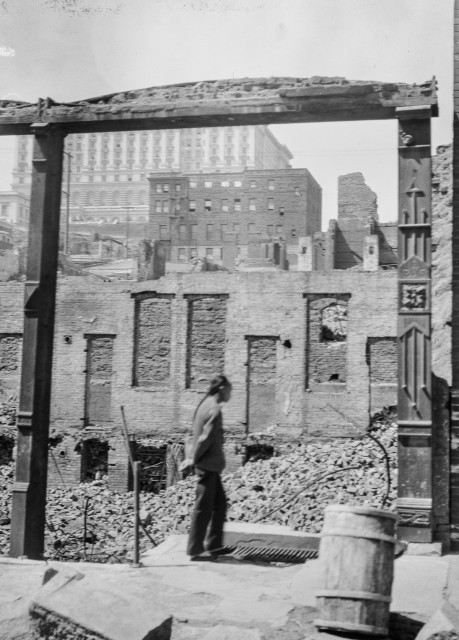
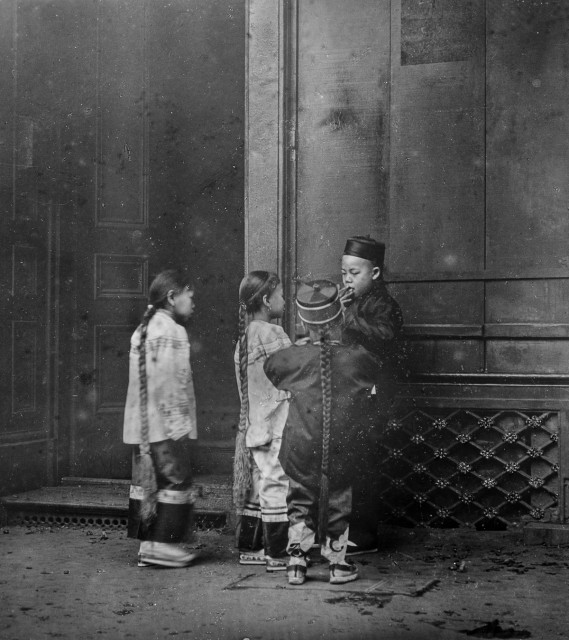
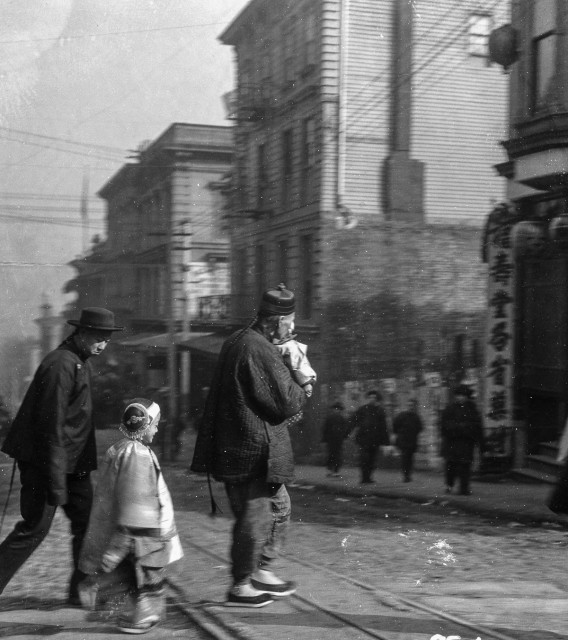
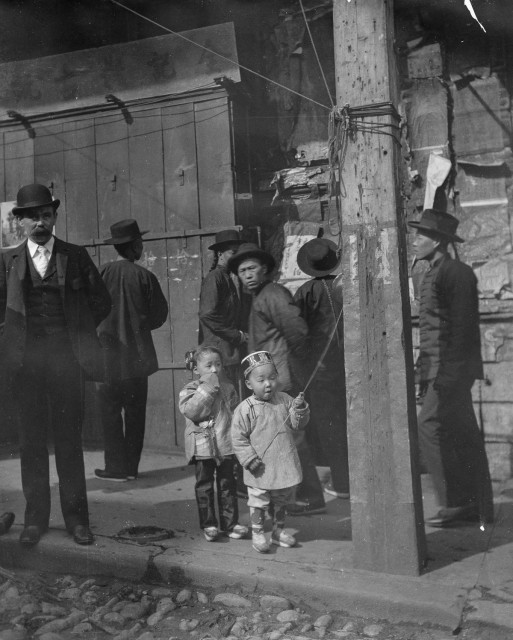
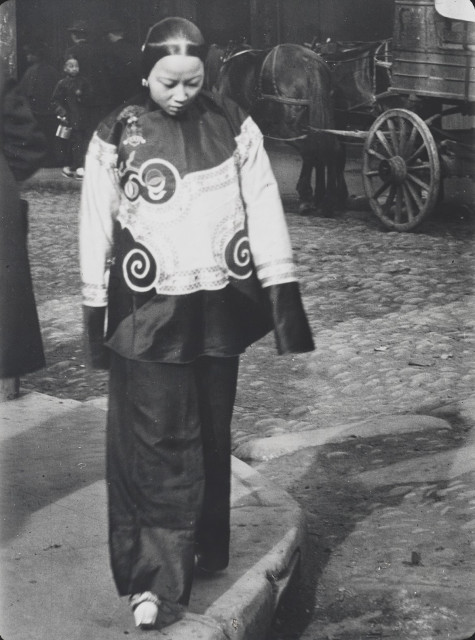
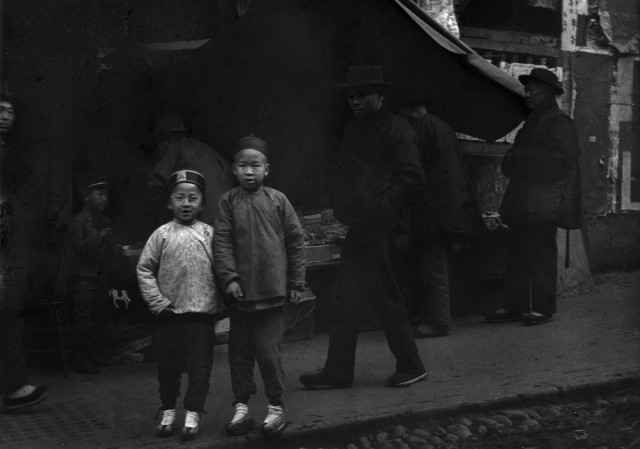
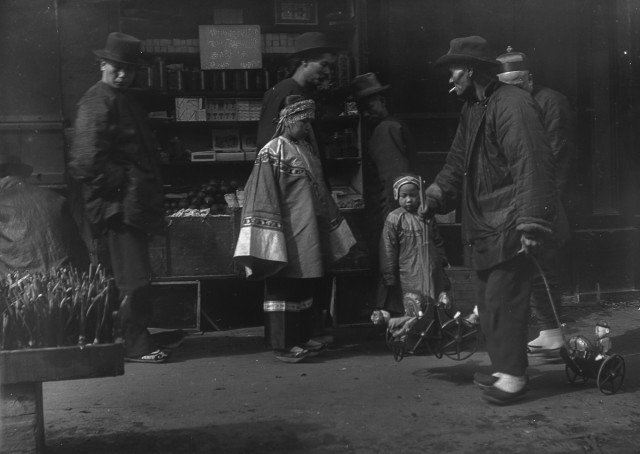
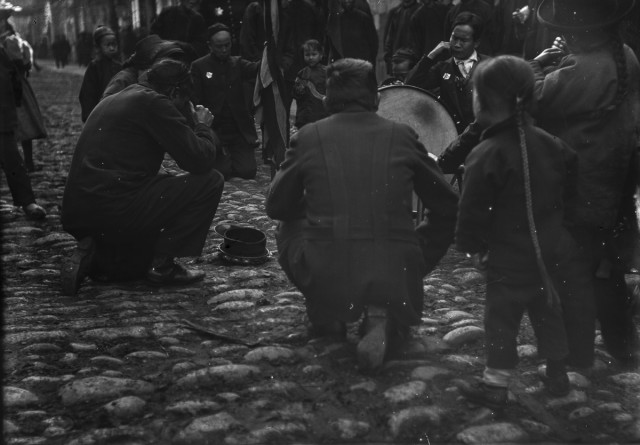
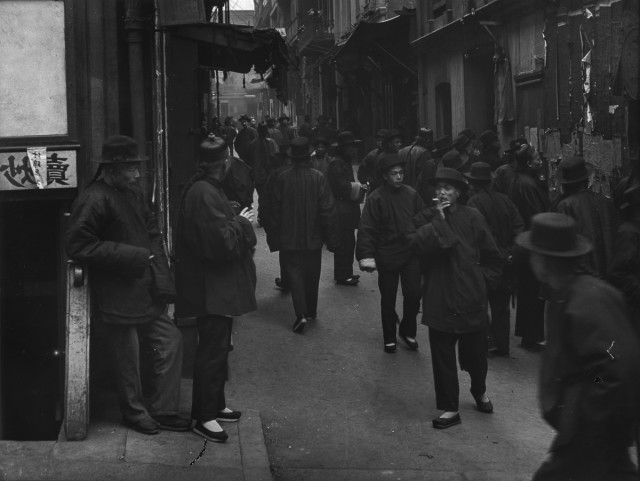
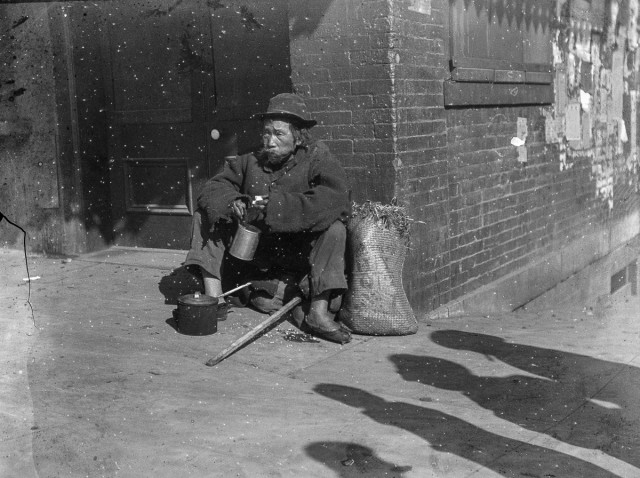
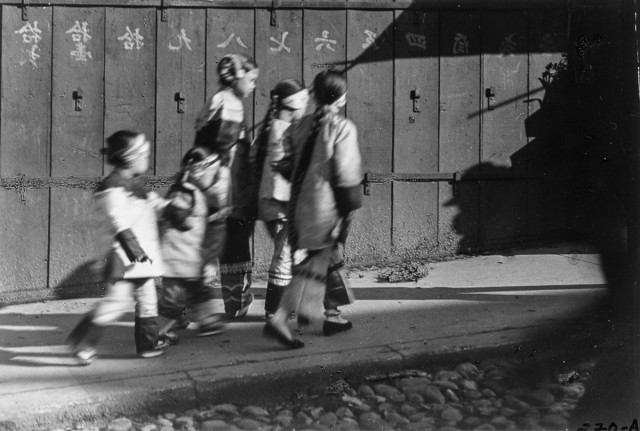
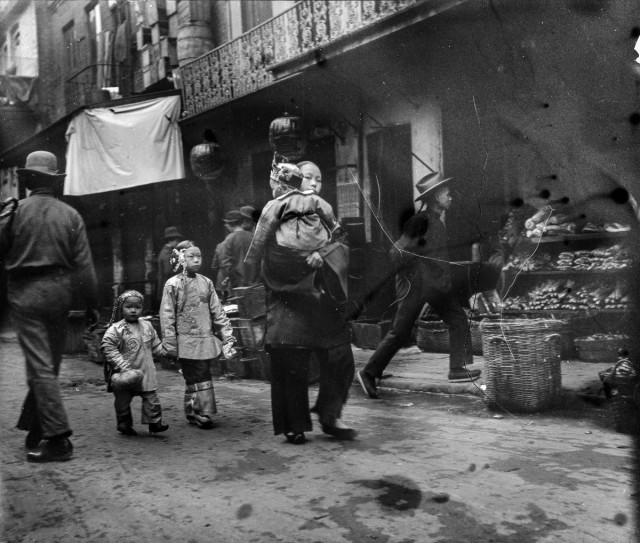
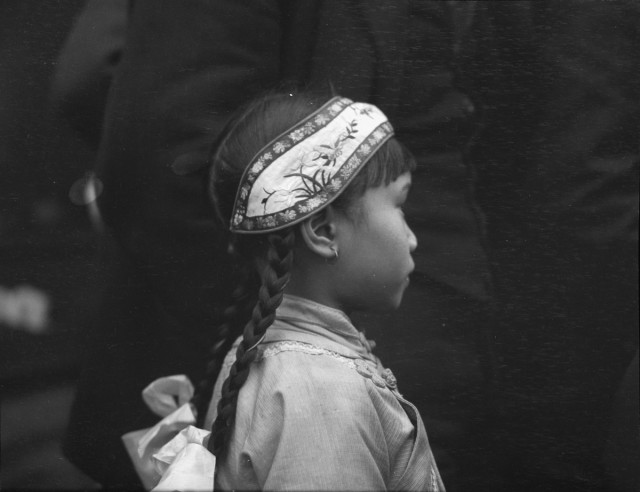
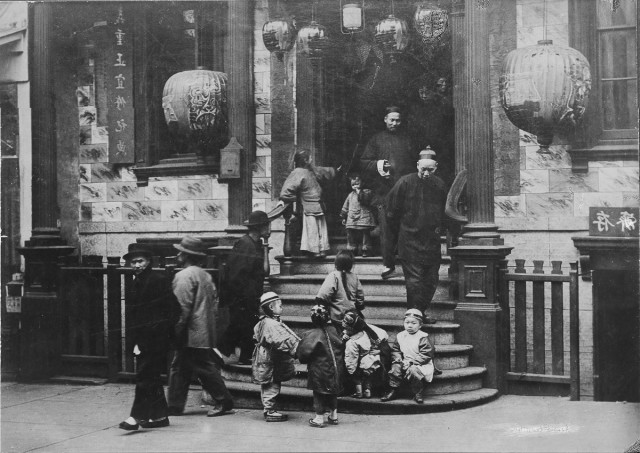
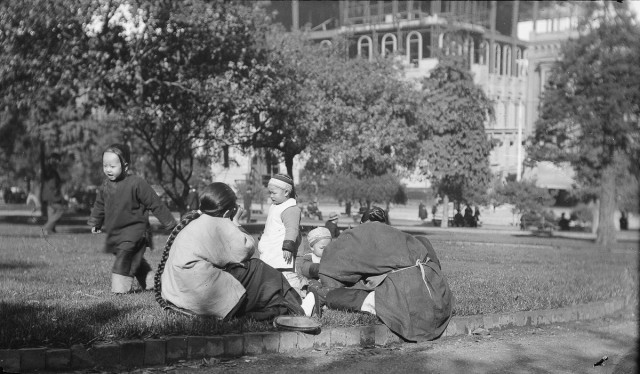
Chinatown has served as a backdrop for several movies, television shows, plays and documentaries including The Maltese Falcon, Big Trouble in Little China, The Pursuit of Happyness, The Presidio, Flower Drum Song, The Dead Pool, and Godzilla.Noted Chinese American writers grew up there such as Russell Leong, and Amy Tan whose experiences growing up in the neighborhood formed the basis of her book The Joy Luck Club and the subsequent film. Notable 1940s basketball player Willie “Woo Woo” Wong, who excelled in local schools, college and professional teams, was born in, and grew up playing basketball in, Chinatown; a local playground bears his name.Actor Bruce Lee, who was born at San Francisco Chinese Hospital before moving back to Hong Kong three months later, returned to the United States at the age of eighteen, residing in San Francisco’s Chinatown for the first few months before moving to Seattle
All photos by Library of Congres
